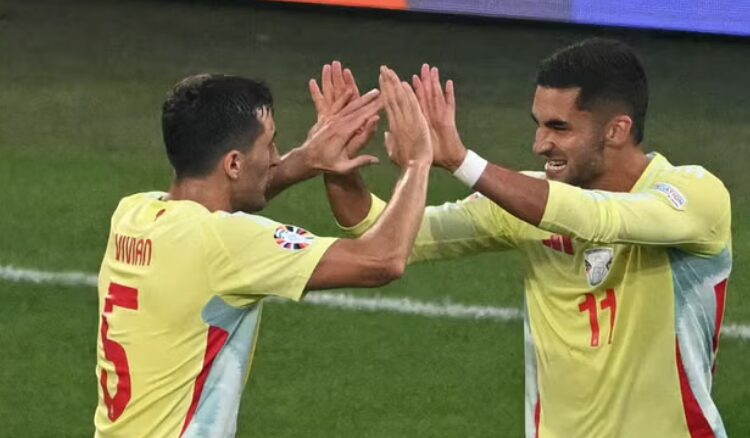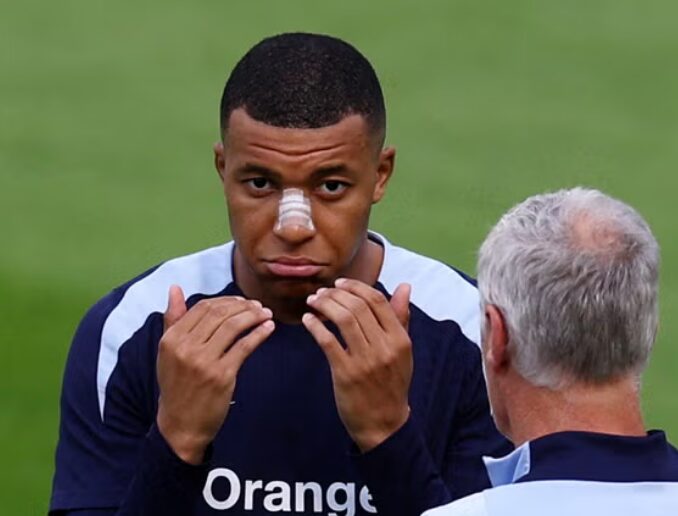Spain are the only top side at Euro 2024 largely satisfied with how their group stage went, but everyone else would still nod along to manager Luis De La Fuente’s message. That is, basically, to forget everything that has happened so far.
It’s a feeling deepened by the first real break of the tournament, following such an intense start. After some squads packed three matches into eight days, teams like Austria now wait a full week for their next fixture. Managers have been glad of that, to the point it almost represents a break in the tournament, too.
“It is a new competition starting for us,” said French manager Didier Deschamps. It might almost be called the real European Championships now, right down to how it features just 16 teams in the way it used to. “We’ll see the real potential of every team,” added De La Fuente.
Considering more than 70 percent of the matches were used to eliminate just a third of the field, the modern group stage is almost less a final qualifying round than a warm-up. Except, this group stage has considerably conditioned how Euro 2024 now looks. It may also decide it.
If concentration of quality used to be the Euros’ best feature, there has never been so much quality concentrated on one side. Arguably, this is the most lopsided any international knockout phase has ever been, but also noticeably similar to last season’s Champions League. Germany, Spain, France, and Portugal probably looked the best possible semi-final quartet after the second round of games, but only two can make it that far. They all sit on that side, along with the story of the tournament in Georgia, a recent contender in Belgium, and one of the highly capable mid-tier teams in Denmark. Slovenia, as we have seen, aren’t exactly easy to play.
Some of the obvious consequences to this are that big teams are going to go out early. Those who make it through could be exhausted.

The impressive Spain are one team on the stacked side of the Euro 2024 draw (AFP via Getty Images)
The underperforming or unconvincing teams, like England and Italy, have space to find rhythm and form on the other side. To make at least one country have a very rare chance of truly historic run and maybe something more, but it could even be two. Focused excitement camps in Austria and in Switzerland.
There will also be some unseen or unexpected consequences. As De La Fuente said, “I don’t think we’ve seen the real quality of certain teams yet”. It’s why he stresses to forget the group stage. Big games can suddenly bring out more in the biggest teams. If France are to meet Portugal in the quarter-final, for example, the challenge might prove the charge they need. Even a meeting with Belgium may be enough.
At the same time, the reason the draw is like this isn’t because of any quirk in the format. It is because a lot of teams just haven’t been all that good. France really ought to be on the other side but have labored to score and look like they’re almost suppressing their immense talent. The same has, of course, been said about England.
Deschamps would abrasively insist that approach is about getting through the competition and making sure that they have enough to play right to the end, but there’s a fair question of whether he’s just too restrained his players. “Potential” has been the word used by so many managers including both De La Fuente and Deschamps. That draw may now well dictate which teams can reach that, because a tough fixture at the wrong moment can quite readily put a full stop on a campaign baring in mind those previous points.

France have struggled so far but coach Dider Deschamps insists he is just guiding his players through the competition (REUTERS)
All of this still points to the possible wider theme of Euro 2024. For all the fair talk of 24 teams diluting quality, there does look to have been some leveling out here. Very few of the top squads are really convincing. All have issues that bring them down. Below that, however, many mid-tier sides have this solid base comprising both tactical approach and technical quality that makes them so much more competitive. More than half of the wins during the group stage, 12 of the 22, were by a single goal. Only three featured victories by more than two goals. Two of those – Spain 3-0 Croatia and Romania 3-0 Ukraine – were more down to specific tactical circumstances rather than any gulf in quality. The only rout was Germany’s 5-1 evisceration of Scotland, and the hosts haven’t come close to the same level since.
Flaws have instead become apparent, as is evident with almost everyone so far except Spain. The Spanish, however, have been in this very position before and suddenly seen every single flaw come together at once. Their game with Georgia is one of the big standout knockout matches, in the regard that it is team of the tournament so far against story of the tournament so far. That really does stand out, along with Austria-Turkey, as a game potentially full of goals.
Otherwise, multiple last-16 ties can be envisaged developing down that same narrow pathway. It’s not hard to visualize Germany-Denmark, Portugal-Slovenia, France-Belgium, and England-Slovakia all turning out as bruising but ultimately hard-won victories for the more fancied sides.
If they do come down to such margins and go later and later, however, that’s when upsets gradually become more likely.
Circumstances beyond tactics and the field will continue to intervene. Another theme of this tournament has been noise and not just that of problem squads such as England and France. So much of it has come from the welcome return of hundreds of thousands of traveling fans to a championship, including many from countries who rarely qualify. Maybe the event of Euro 2024 so far has been Georgia’s win over Portugal.
Then there is the effect of the break itself. Managers feel they finally have space to work with fully integrated squads for the first time. It may see tactical plans properly realised. It may bring surprises. “We’ve got a little break that will do everyone good,” Deschamps said.
And the example of the two previous champions from the 24-team Euros is split, similar to how there is a tournament split now.
In 2016, Portugal went from a team that couldn’t get going to one that had this gradual momentum develop through the knockout stages. At Euro 2020, Italy announced itself as probably the team of the tournament from the opening game and pretty much stayed like that; they did falter later, but the forces and confidence they’d developed kept them going.
All other remaining teams have these precedents to draw on, but at the same time, they also know somehow that this is something new now.